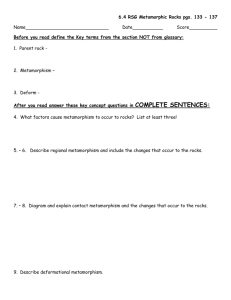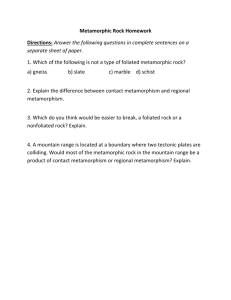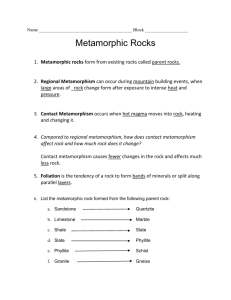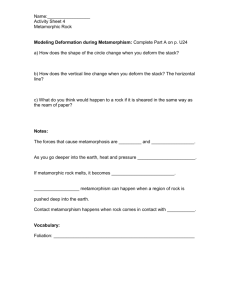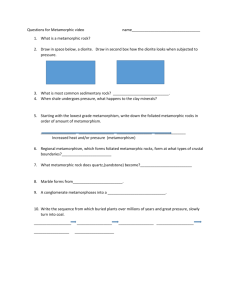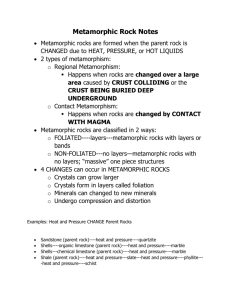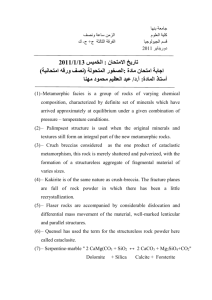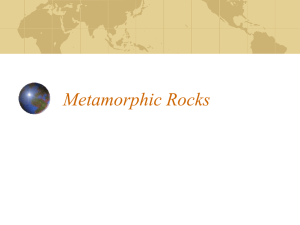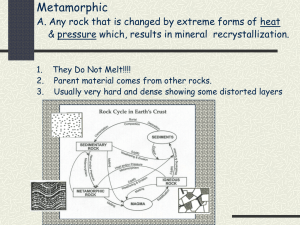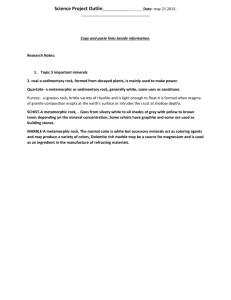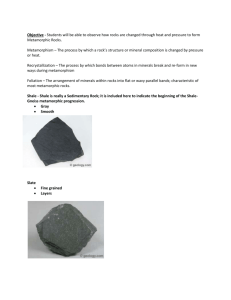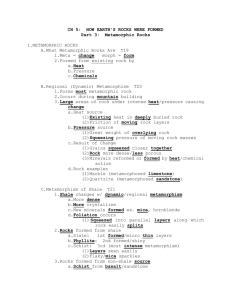Rocks 4 – Metamorphic (6.4) Metamorphic rocks come from rocks
advertisement
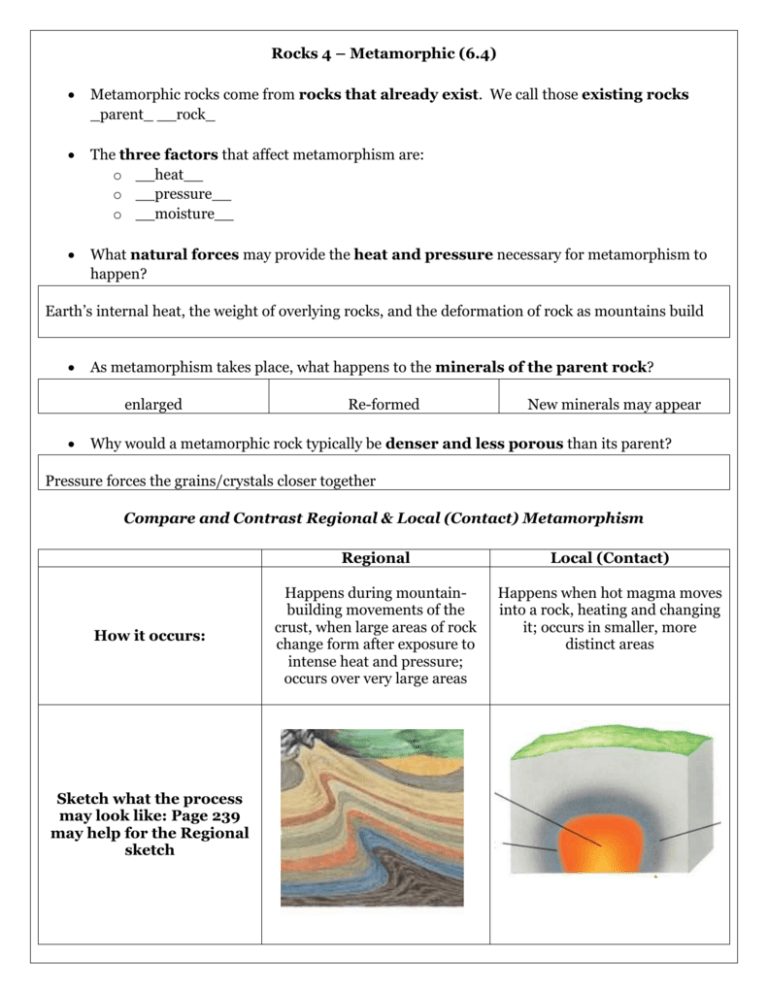
Rocks 4 – Metamorphic (6.4) Metamorphic rocks come from rocks that already exist. We call those existing rocks _parent_ __rock_ The three factors that affect metamorphism are: o __heat__ o __pressure__ o __moisture__ What natural forces may provide the heat and pressure necessary for metamorphism to happen? Earth’s internal heat, the weight of overlying rocks, and the deformation of rock as mountains build As metamorphism takes place, what happens to the minerals of the parent rock? enlarged Re-formed New minerals may appear Why would a metamorphic rock typically be denser and less porous than its parent? Pressure forces the grains/crystals closer together Compare and Contrast Regional & Local (Contact) Metamorphism How it occurs: Sketch what the process may look like: Page 239 may help for the Regional sketch Regional Local (Contact) Happens during mountainbuilding movements of the crust, when large areas of rock change form after exposure to intense heat and pressure; occurs over very large areas Happens when hot magma moves into a rock, heating and changing it; occurs in smaller, more distinct areas Rock Quartzite Description Parent Consist largely of quartz crystals. Dense non-foliated, uniformly crystalline rock Sandstone Marble Usually non-foliated and evengrained with a sugar-like texture Limestone Slate Slightly shinier and has a flatter, less irregular surface Shale Schist Tend to be large-grained and often contain large crystals of minerals not found in the parent rock Gneiss The name of the gneiss describes its chemical composition. Has the coarsest foliation of all the metamorphic rocks Shale and Basalt Granite Using page 137, what would be a good description for the term “foliation”? Wavy parallel bands of the same mineral throughout the rock On page 149 the steps in the coal formation process are shown. o What process must take place to transform bituminous coal into anthracite coal? Heat and pressure from regional metamorphism o Which would be better to burn for energy? Anthracite because bituminous coal contains up to 85% carbon, while anthracite contains about 90-95% carbon
